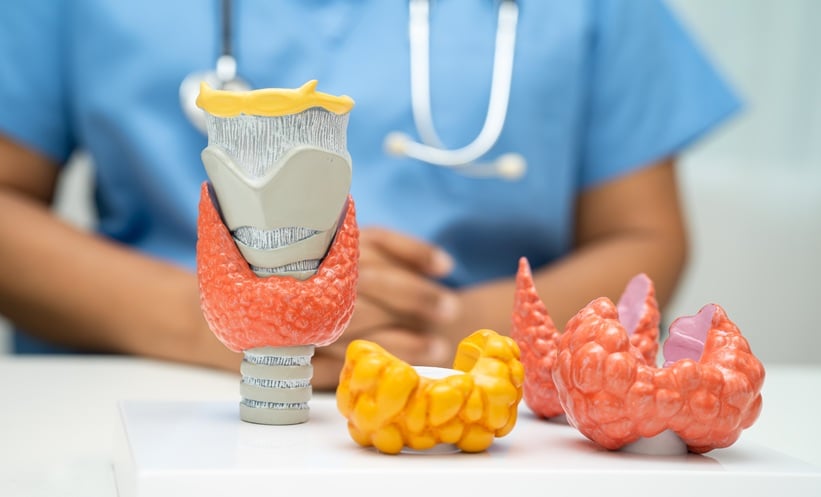A NOVEL deep learning approach to body composition analysis may offer a cost-effective and clinically relevant method to predict treatment outcomes in patients with relapsed or refractory diffuse large B-cell lymphoma (DLBCL), according to findings from the LOTIS-2 trial.
In this imaging sub-study, researchers analyzed baseline CT scans from 140 patients with rel/ref DLBCL who received loncastuximab tesirine. Using both manual and artificial intelligence-driven methods, they segmented key tissue compartments at the L3 vertebral level, focusing on skeletal muscle, subcutaneous fat, and visceral fat. From these compartments, the investigators derived body composition ratios, including the skeletal muscle to visceral fat (SM*/VF*) index.
The SM*/VF* ratio emerged as a significant predictor of failure to achieve complete metabolic response. In both manual and automated models, dichotomized SM*/VF* indices were independently associated with response in univariable and multivariable logistic regression analyses. Moreover, the manual SM*/VF* index was significantly associated with progression-free survival, though not overall survival, in Cox regression models.
Notably, the deep learning-based segmentation yielded comparable performance to manual methods, suggesting that this automated technique could streamline the assessment of imaging biomarkers in clinical trials and practice.
These findings position the SM*/VF* index as a potential imaging biomarker for prognostication in patients undergoing treatment for rel/ref DLBCL. The use of deep learning further enhances the feasibility of incorporating such metrics into routine workflows, potentially reducing both time and cost compared with traditional manual techniques.
As interest grows in using artificial intelligence to improve cancer care, this study provides early support for the integration of deep learning into imaging-based outcome prediction.
Reference:
Kuker RA et al. Deep Learning-Based Body Composition Analysis for Outcome Prediction in Relapsed/Refractory Diffuse Large B-Cell Lymphoma: Insights From the LOTIS-2 Trial. JCO Clin Cancer Inform. 2025:9:e2500051.








